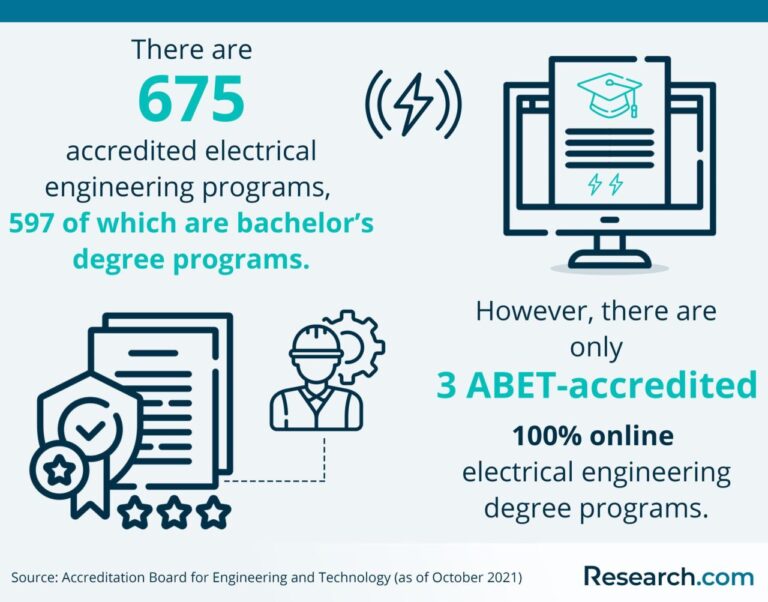Pursue Your Passion in Software Engineering with an Online Degree
In today’s digital landscape, software engineering has emerged as a highly sought-after field, offering ample opportunities for career growth and innovation. An online software engineering degree provides a flexible and accessible path to acquire the skills and knowledge necessary to succeed in this dynamic industry.
Embark on a journey of discovery as we delve into the intricacies of online software engineering degrees, exploring their curriculum, career prospects, and the advantages and considerations associated with pursuing this educational path.
Contents
Online Software Engineering Degree Overview
An online software engineering degree is a flexible and convenient way to earn a degree in this in-demand field. Online programs offer the same rigorous curriculum as traditional on-campus programs, but with the added flexibility of studying at your own pace and on your own schedule.
There are many benefits to pursuing an online software engineering degree. First, online programs are often more affordable than traditional on-campus programs. Second, online programs offer a great deal of flexibility, allowing you to study at your own pace and on your own schedule.
Third, online programs often have a wider range of course offerings than traditional on-campus programs, giving you the opportunity to specialize in a particular area of software engineering.
However, there are also some drawbacks to pursuing an online software engineering degree. First, online programs can be more isolating than traditional on-campus programs. Second, online programs can be more difficult to stay motivated in. Third, online programs may not offer the same level of hands-on experience as traditional on-campus programs.
Coursework
The coursework for an online software engineering degree typically includes courses in computer science fundamentals, software design, data structures, algorithms, and programming languages. Students may also take courses in specialized areas of software engineering, such as artificial intelligence, machine learning, or web development.
Career Outlook
The job outlook for software engineers is excellent. According to the U.S. Bureau of Labor Statistics, the median annual salary for software engineers was $110,140 in May 2021. The demand for software engineers is expected to grow by 22% from 2021 to 2031, much faster than the average for all occupations.
Curriculum and Coursework
An online software engineering degree typically consists of a comprehensive curriculum designed to equip students with the foundational knowledge and practical skills essential for success in the field. The coursework emphasizes core concepts, specialized areas, and hands-on experiences to prepare graduates for the demands of modern software development.
Core courses in online software engineering programs typically cover fundamental principles such as data structures, algorithms, software design, and programming languages. These courses provide a solid foundation in the theoretical and practical aspects of software engineering. In addition, students often have the flexibility to choose from a range of specializations, such as web development, mobile app development, or data science, to tailor their education to their specific interests and career goals.
Hands-on Projects and Practical Experiences
Online software engineering programs often incorporate hands-on projects and practical experiences into their coursework. These experiences provide students with opportunities to apply their knowledge and skills in real-world settings. Common types of hands-on projects include:
- Developing software applications from scratch
- Participating in open-source software projects
- Working on industry-sponsored projects
Through these projects, students gain valuable experience in software development methodologies, teamwork, and problem-solving, which are highly sought after by employers in the field.
Career Prospects and Industry Trends

Graduates with an online software engineering degree possess a wide range of career opportunities in the thriving tech industry. The demand for skilled software engineers continues to surge, driven by advancements in technology and the increasing reliance on digital solutions across sectors.
Job Growth and Salary Expectations
According to the U.S. Bureau of Labor Statistics, employment for software developers is projected to grow by 22% from 2021 to 2031, much faster than the average for all occupations. This growth is attributed to the increasing adoption of cloud computing, artificial intelligence, and mobile technologies.
The median annual salary for software developers in May 2021 was $110,140, with the top 10% earning over $162,000.
Career Advancement Opportunities
With experience and continued education, software engineers can advance their careers into leadership roles such as software architect, technical lead, or engineering manager. They can also specialize in specific areas of software development, such as mobile development, cloud computing, or data science.
The industry offers ample opportunities for professional growth and career progression.
Industry Trends and Emerging Technologies
The software engineering field is constantly evolving, driven by emerging technologies and industry trends. Cloud computing has revolutionized the way software is developed and deployed, allowing for greater scalability, flexibility, and cost-effectiveness. Artificial intelligence and machine learning are transforming various industries, creating new job opportunities for software engineers skilled in these technologies.Other
emerging trends include the rise of mobile and IoT devices, the adoption of agile development methodologies, and the increasing importance of cybersecurity. Software engineers who stay abreast of these trends and acquire the necessary skills will be well-positioned for success in the competitive tech industry.
Program Structure and Delivery Methods
Online software engineering programs offer diverse program structures and delivery methods, catering to different learning styles and schedules.
Asynchronous Programs
Asynchronous programs allow students to progress through the course material at their own pace, without scheduled live sessions. Students have the flexibility to access lectures, assignments, and discussion forums at their convenience.
Synchronous Programs
Synchronous programs feature live online classes, where students and instructors interact in real-time. These programs provide a more structured and interactive learning experience, similar to traditional in-person classes.
Hybrid Programs
Hybrid programs combine asynchronous and synchronous elements. Students have the flexibility of self-paced learning, supplemented by live online sessions and virtual discussions.
Delivery Methods
Online software engineering programs utilize various delivery methods to enhance the learning experience:
- Video Lectures:Pre-recorded video lectures allow students to learn from industry experts and renowned professors.
- Discussion Forums:Online forums foster collaboration and peer-to-peer learning, where students can ask questions, share insights, and engage in discussions.
- Virtual Labs:Virtual labs provide a simulated environment for students to practice coding and experiment with software tools.
Flexibility and Time Commitment
Online programs offer flexibility, allowing students to balance their studies with work, family, and other commitments. The time commitment varies depending on the program structure and the student’s pace, but typically ranges from 2 to 5 years for a bachelor’s degree.
Accreditation and Recognition
Accreditation is essential for online software engineering degrees as it ensures the program meets industry standards and provides students with a high-quality education.
The following are recognized accreditation bodies for online engineering programs:
Accreditation Bodies
- Accreditation Board for Engineering and Technology (ABET)
- Engineering Accreditation Commission of ABET (EAC)
- Computing Accreditation Commission of ABET (CAC)
Evaluating Credibility
To evaluate the credibility and reputation of online software engineering programs, consider the following factors:
- Accreditation status
- Faculty credentials
- Program curriculum
- Student reviews
- Employer recognition
Concluding Remarks
As you complete your online software engineering degree, you will be equipped with the technical expertise and industry knowledge to navigate the ever-evolving landscape of software development. Whether you aspire to create groundbreaking applications, design robust systems, or lead teams in shaping the future of technology, an online software engineering degree will empower you to achieve your goals.





